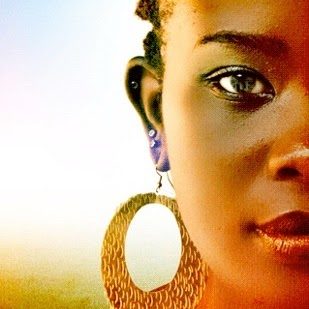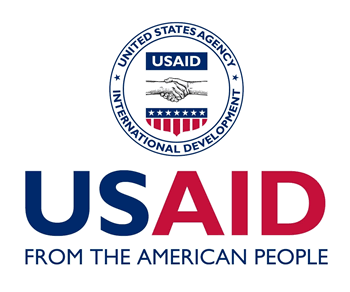The U.S., for its part, has also crafted three special initiatives to help Africa since the 1990s. The basic reason why many well-intentioned aid programs came to grief was that the commitment on the part of many of African leaders to put their own houses in order was simply not there. They took the aid money and did the “Babangida Boogie” – one step forward, three steps back, a flip and a sidekick to land on a fat Swiss bank account. This prompted even former President Bill Clinton – regarded as a “friend of Africa” – to bemoan it.
“The responsibility rests with African countries to commit themselves to these objectives and to make policy choices that will enable them to achieve these objectives. Help from outside Africa cannot overcome lack of commitment or wrong choices by the governments of Africa“, President Clinton said in his Feb 5, 1996 Report to Congress: (U.S. Government Report, 1996, 3). Clinton subsequently took bold steps to move away from aid paradigm, replacing it with the slogan “trade not aid.”
He then crafted the Africa Growth and Opportunity Act (AGOA), which open the vast US market to any African country that pursues certain types of reforms. It was signed into law in 2000 but after a decade in operation, only Lesotho and Mauritius could be termed success stories although trade between the US and Africa has increased substantially.
Clinton sincerely cared about Africa but his overall US-Africa policy was not successful because it was “leader-centered,” rather than being “INSTITUTION-BASED.” He was always looking for an “Abraham Lincoln” seeking to transform his African country and form cozy partnership with. During his historic trip to Africa in March 1998, he hailed Meles Zenawi of Ethiopia, Isaiah Afwerki of Eritrea, Laurent Kabila of Congo DR, Yoweri Museveni of Uganda and Paul Kagame of Rwanda as the “new leaders of Africa.”
But as it turned out, these so-called “new leaders” were old wine in new bottles. Barely two months after his return to the US in 1998, Ethiopia and Eritrea were at war and the rest of the other new leaders were at each other’s throat in the Congo war. And the rest of them turned out to be reform acrobats and crackpot democrats.Even worse, more African countries have imploded under Clinton’s watch after he took office in 1992: Somalia (1993); Rwanda (1994); Burundi (1996); Zaire (1996); Congo-Brazzaville (1997); Sierra Leone (1997); Congo (1998); Ethiopia/Eritrea (1998); Guinea (1999).
Though the Clinton administration set up the Africa Crisis Response Initiative (ACRI) to deal with Rwanda-like conflagration, it failed miserably – few African countries contributed troops to support it. The final indignity came in 2000 when ACRI went to Ivory Coast to train Ivorian soldiers – it was the same year Ivory Coast convulsed into mayhem in Oct, following a stolen election by General Robert Guie.
Nor was Africa’s democratization process successful under Clinton’s watch. The process has in fact stalled — the number of African democracies has remained stuck at 15 — out of 54 African countries — since 1995. Though Ghana and Senegal did make a successful democratic transition in 2000, the Ghana model was hardly the success story the Clinton administration touted it to be when he visited the country in 1998 — the first African country on his itinerary. The regime of Fte./Lte Jerry Rawlings had turned out to be the most corrupt, the most brutal and the most incompetent in Ghana’s post-colonial history. When Rawling’s ruling party lost the general elections in December 2000, jubilant Ghanaians poured out into the streets to celebrate. Said one Efua Nyarkoa of Accra:
“I had not been born when Ghana attained independence in 1957, but I’ve heard of the euphoria that the joy of freedom brought to all. Those who were blessed to be part of it speak of the way it transformed their lives. But now the jubilation that has swept the entire country following the fall of the (P)NDC, they say, far surpasses Ghana’s liberation in 1957.
“This is true independence,” I heard it said on the street corners and shouted from the roof tops. Never since the colonial era had Ghanaians been oppressed as they were under the (P)NDC and never have they felt so liberated. Its exit has lifted the greatest burden off our shoulders and suddenly a calm has settled over the land.” (The Statesman, January 19-25, 2001; p.9)
Clinton’s Africa policy came under fire even in the black American community he sought to please. In April 2000, black American Congresswoman, Rep Cynthia McKinney (D, Georgia) berated: “I am sorry to say this administration has no Africa policy — or what it has has tremendously failed” (The Washington Times, April 14, 2000; p.A17). And in a January interview with The East African newspaper, she described Clinton’s Africa Policy as “such an abysmal failure.” “How can someone so friendly end up with such an outrageous, atrocious, horrible policy that assists perpetrators of crimes against humanity, inflicting damages on innocent African people?” she asked. Similar sentiments were expressed by Randall Robinson, executive director of TransAfrica that spearheaded the campaign against apartheid in South Africa. He dismissed Clinton’s policies in Africa as a “disaster.”
Clinton, however, had a sort of mea culpa and seemed to have abandoned his “leader-centered” approach. During an interview with the BBC on Jan12, 2011, regarding Haiti reconstruction efforts, a frustrated Clinton said, what will pull Haiti out of its misery are “strong institutions.” Amen.
The Bush administration’s policy toward Africa, by contrast, was more “hands-off” and tougher because he knew past US foreign aid programs in Africa had not been successful. He wanted aid to be performance-based and results-oriented. Accordingly he crafted a new approach called the Millennium Challenge Account (MCA) in 2003. Foreign aid was to be replaced by GRANTS to be given to only those countries that “show results” in:
a. Ruling justly
b. Promoting economic freedom, and
c. Investing in people.
Each of the three broad category areas has sub-categories that must be satisfied for a country to be deemed eligible for an MCA grant. For example, “Ruling Justly” specifies the following 6 benchmarks or indicators: civil liberties; political rights; voice and accountability; government effectiveness; rule of law; and control of corruption. “Encouraging Economic Freedom” also has 6 benchmarks and “Investing in People” has 4, bringing the overall total to 16.
Unfortunately, so stringent were these conditionalities that few African countries could meet them. So “the Millennium Challenge Corporation approved an $11 million grant to Tanzania to combat corruption and qualify for a bigger aid package” (The New York Times, Feb 2, 2006; p.A13). In other words, Tanzania which did not meet the conditionalities, secured aid to help it meet them! And how successful has Tanzania been in fighting corruption?
Alas, when President Bush visited Tanzania on Monday, Feb 18, he found that the country which was receiving $698 million in MCA grant had no cabinet. The entire Cabinet had been dissolved over a corruption scandal, involving the award of $172.5 million contract to supply 100 megawatts of emergency power to a Texas based company that did not exist. Even the anti-corruption czar, Dr Edward Hosea, was implicated. Other African countries that received MDC grants were dubious “success stories.” Among them were Kenya, which was gripped by political violence and Uganda, which is no democracy.
The question is, would Obama’s 4-pillar strategy navigate through this junkyard of aid wreckage and succeed? Not likely.
Like Clinton, Obama takes the “engagement approach,” seeking relationships and “partnerships,” unlike George W. Bush. There is nothing wrong with his 4 broad policy goals.
1. Strengthen Democratic Institutions
2. Spur Economic Growth, Trade, and Investment
3. Advance Peace and Security
4. Promote Opportunity and Development
I particularly like the emphasis on INSTITUTIONS. However, there are 4 problem areas with Obama’s 4-Pillar Strategy and it is not entirely his fault. The first is the term “partner” as in “development partner.” Oh, how I hate that word. Partnership with whom in Africa? Partnership may sound like a nice diplomatic term but if pursued, the US may find itself in “partnership” with rogue regimes and corrupt and incompetent despots and bandits in Africa. This may well open the US to accusations of propping up despicable regimes in Africa.
Second, Obama’s emphasis on strong institutions and his partnership with African governments may create the impression that it is these governments or leaders who must create these strong institutions and the whole idea can be debauched. Don’t be surprised if you hear an African government set up a “Ministry of Strong Institutions,” just as Tanzania set up a “Ministry of Good Governance.” Strong institutions are created by CIVIL SOCIETY, not governments or leaders.
Third, partnership with African governments to “Strengthen democratic institutions” and “Spur economic growth and investment” REINFORCES the belief in state interventionism and expansion of the role of government in society and the economy. In Africa, the state IS the problem and Africans certainly don’t want more of it in their lives. Recall the quip by the traditional Lesotho chief: “Here in Lesotho, we have two problems — rats and the government.” Don’t ask Kenyans, Nigerians, Tanzanians or Zimbabweans what they think of their governments, let alone give them more of it.
Fourth, there is little Obama can do to help Africa if there is no commitment on the part of African leaders to help their own continent. Recall that Clinton lamented this lack of commitment. “Help from outside Africa cannot overcome lack of commitment or wrong choices by the governments of Africa“, President Clinton said in his Feb 5, 1996 Report to Congress: (U.S. Government Report, 1996, 3). Former UN Secretary-General, Kofi Annan hammered on the same theme at the Jan 2000 African Union Summit in Abuja, Nigeria. At the Summit, he told African leaders of their lack of progress on meeting the UN’s Millennium Development Goals that they agreed to in 2000. Five year earlier, he was less restrained, lashing out at African leaders and blaming them for most of the continent’s problems (The Daily Graphic, July 12, 2000; p.1).
To be fair to President Barak Obama, you cannot fault him if African leaders choose to develop their pockets instead of their countries. Furthermore, Obama is in a diplomatic straight-jacket. In dealing with African governments, he is limited to a “partnership” by diplomatic protocol. Foreign governments deal with African governments and the relationship is termed a “partnership.” My preference would be for say the US government dealing directly with CIVIL SOCIETY groups but in many African countries this may be regarded as subversion.
In sum, past efforts to develop Africa have failed because they applied the REVERSE OCCAM’S RAZOR. Is Africa a stubborn and incurable patient? No, I say sack the doctors!

